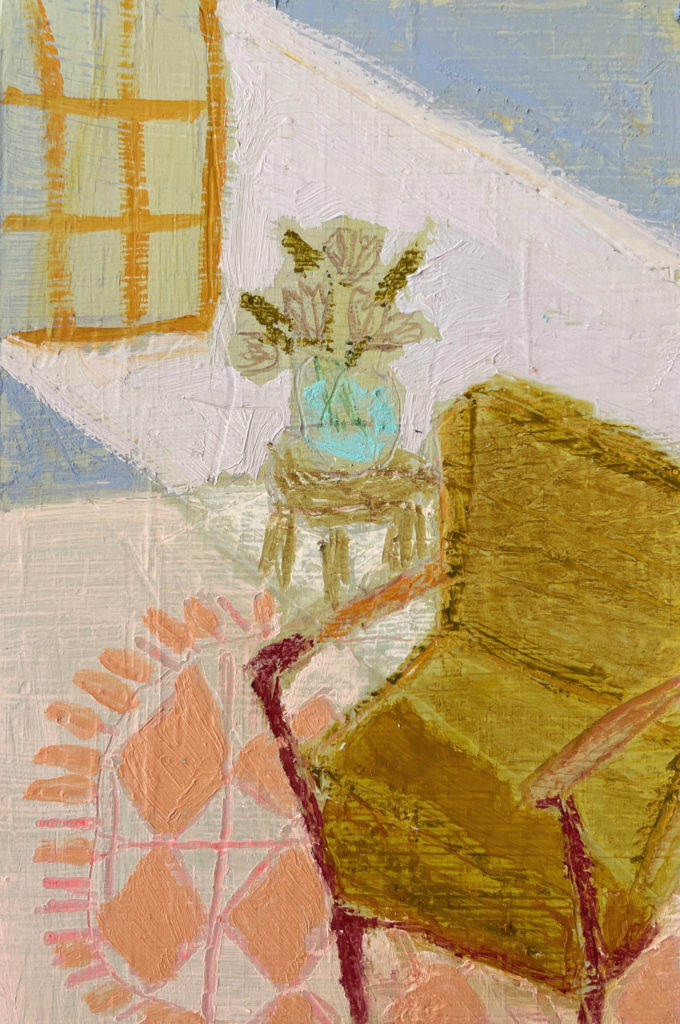
And Mary said,
“My soul magnifies the Lord,
and my spirit rejoices in God my Savior,
for he has looked on the humble estate of his servant.
For behold, from now on all generations will call me blessed;
for he who is mighty has done great things for me,
and holy is his name.
And his mercy is for those who fear him
from generation to generation.
He has shown strength with his arm;
he has scattered the proud in the thoughts of their hearts;
he has brought down the mighty from their thrones
and exalted those of humble estate;
he has filled the hungry with good things,
and the rich he has sent away empty.
He has helped his servant Israel,
in remembrance of his mercy,
as he spoke to our fathers,
to Abraham and to his offspring forever.”
Luke 1:46–55
And Mary Sang: “O Come, O Come, Emmanuel”
In Luke 1:46–55, with the Christ Child within her, Mary visits Elizabeth, the mother of John the Baptist, soon to be born. Elizabeth feels John leap inside of her at Mary’s greeting, and “Elizabeth was filled with the Holy Spirit.” Then, Mary sings, and we hear her rejoice for the Mighty One, and celebrate God’s:
- Awareness of “the humble state of his servant”
- Scattering “those who are proud of their inmost thoughts”
- Bringing “down rulers from their thrones, but lifting up the humble”
- Filling “the hungry with good things but [sending] the rich away empty”
Mary rejoices for God’s mercy on the descendants of Abraham, which extends “from generation to generation.” The descendants of Abraham are the humble, the hungry, the most deserving of mercy in God’s eyes, as Mary voices in joyful reunion with her beloved cousin, Elizabeth. Their familial ties reveal to us the core of celebration at birth: two expectant mothers of two beloved sons and cousins in the tribe of Abraham, one of which is the Christ child.
We celebrate our own children’s births as events focused on joy and miracle. We can witness in the birth of our siblings, children, nieces and nephews and cousins, the force of life granted to all of us, to our fecundity in the willingness of the Lord. These familial ties are equal with God’s mercy, as Mary expresses in her song.
As Mary sings in celebration of the joy within her, she also reminds us that soon, as God has promised, Israel would be released from its captivity when the son of God appears. We sing a celebration at the coming of Jesus Christ similar to Mary’s song in John 1:46–55. It’s in the Advent hymn “O Come, O Come, Emmanuel,” which asks us to rejoice at the coming birth of Jesus, who “[m]ake[s] safe for us the heavenward road / and bar[s] the way to death’s abode.” We can rejoice in the coming of Jesus the savior, He who rescues us from hell, sheds light on the darkness, and “bid[s] all our sad divisions cease.” We pray for the ceasing of sad divisions — this year, especially. We pray, also, at the joy of Jesus’s birth and John the Baptist’s herald of that Holy Arrival.
Yet, what resonates for me most strongly in Mary’s song in Luke 1:46–55 are the deeds of the Mighty One, of an active and assertive God. He lifts up the humble, feeds the hungry and sends the rich away, their bellies empty. It’s a telling moment early in the Gospel of Luke. I am reminded of my own humility in the eyes of the Lord, and that he favors those who need more than I do. I am reminded of the requirement to humble myself before the Lord and before others, and that Christ’s coming will redeem me (it has redeemed me — it continually redeems me) as I commit myself to his mission: to help those among me who are most in need.
The past and future generations of our families, like our lineages of faith and love, expand across time, beyond our mortal memories, insights, and predictions. Our children’s children will be children, as we are the children of children. All the humble, all the hungry, all those who seek succor, were once children in their mothers’ wombs, mothers who rejoiced at the coming of their child, and celebrated in the warmth of their families.
Dr. Pablo Peschiera is an associate professor of English at Hope College.

Scripture quotations are from the ESV® Bible (The Holy Bible, English Standard Version®), copyright © 2001 by Crossway, a publishing ministry of Good News Publishers. Used by permission. All rights reserved.


